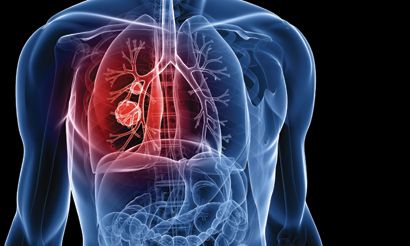Durvalumab Monotherapy Does Not Achieve Significant OS in Metastatic NSCLC
Data from the phase 3 PEARL study show that durvalumab does not induce statistically significant overall survival in patients with metastatic non–small cell lung cancer.

Treatment with durvalumab (Imfinzi) did not reach statistical significance for the primary end points of overall survival (OS) compared with platinum-based chemotherapy alone in patients with metastatic non–small cell lung cancer (NSCLC), according to updated findings from the phase 3 PEARL trial (NCT03003962).1
However, there was an improvement in OS with durvalumab monotherapy in the subset of patients with PD-L1 tumor expression greater than 50, which was a secondary end point of the trial.
In addition, the safety and tolerability profile of durvalumab was consistent with the known profile of the agent and no new safety signals were identified in the study.
“With PEARL, we set out to answer important scientific questions in the treatment of metastatic non–small cell lung cancer at a time when patient selection for immune checkpoint inhibitors was still evolving. We are encouraged to see patients in the metastatic setting at a higher level of PD-L1 tumor expression demonstrate the most benefit with [durvalumab] monotherapy treatment, as is commonly seen in this class,” said Susan Galbraith, executive vice president, Oncology R&D, AstraZeneca, said in the press release.
Durvalumab is a human monoclonal antibody which works by binding to the PD-L1 protein and blocking the interaction of PD-L1 with the PD-1 and CD80 proteins. Then, the agent counters the tumor’s immune-evading tactics and allows for the release of inhibition of immune responses.
In the randomized, open-label, multicenter, global, phase 3 PEARL trial, investigators are evaluating the use of durvalumab as a monotherapy vs investigator’s choice platinum-based chemotherapy as a first-line treatment in 671 patients with metastatic NSCLC.2
Patients aged 18 years and older were eligible for enrollment in the study if they had tumors expressing high levels of PD-L1, defined as ≥25% of tumor cells, no sensitizing EGFR mutation and ALK rearrangement, and an ECOG performance status of 0 or 1.
The primary end points of the study are to assess OS in all randomized patients and in patients who are at low risk of early mortality with secondary end points of objective response rate, duration of response, proportion of patients alive and progression-free at 12, 18, and 24 months from randomization, progression-free survival, health-related quality of life, and immunogenicity. Other end points include the incidence of treatment-emergent adverse events.
The PEARL trial is ongoing across 93 study locations, including in Asia, Europe, and Australia, and has an estimated study completion date of June 30, 2023.
The FDA previously approved the combination of durvalumab and tremelimumab (Imjudo) plus platinum-based chemotherapy for the treatment of stage IV NSCLC based on the results of the phase 3 POSEIDON trial.
Currently, durvalumab is the only approved immunotherapy and is the global standard of care in the curative-intent setting for patients with unresectable, stage III NSCLC whose disease has not progressed after chemoradiation therapy. This is based on findings from the phase 3 PACIFIC trial.
“We remain steadfast in our dedication to developing new and improved medicines and regimens for patients with lung cancer across our diverse portfolio,” added Galbraith, in the press release.
REFERENCES:
Update on PEARL phase III trial of Imfinzi monotherapy in stage IV non-small cell lung cancer. News release. AstraZeneca. December 19, 2022. Accessed December 19, 2022. https://bit.ly/3VeJmfv
Study of durvalumab alone or chemotherapy for patients with advanced non small-cell lung cancer (PEARL). ClinicalTrials.gov. Updated December 13, 2022. Accessed December 19, 2022. https://clinicaltrials.gov/ct2/show/NCT03003962